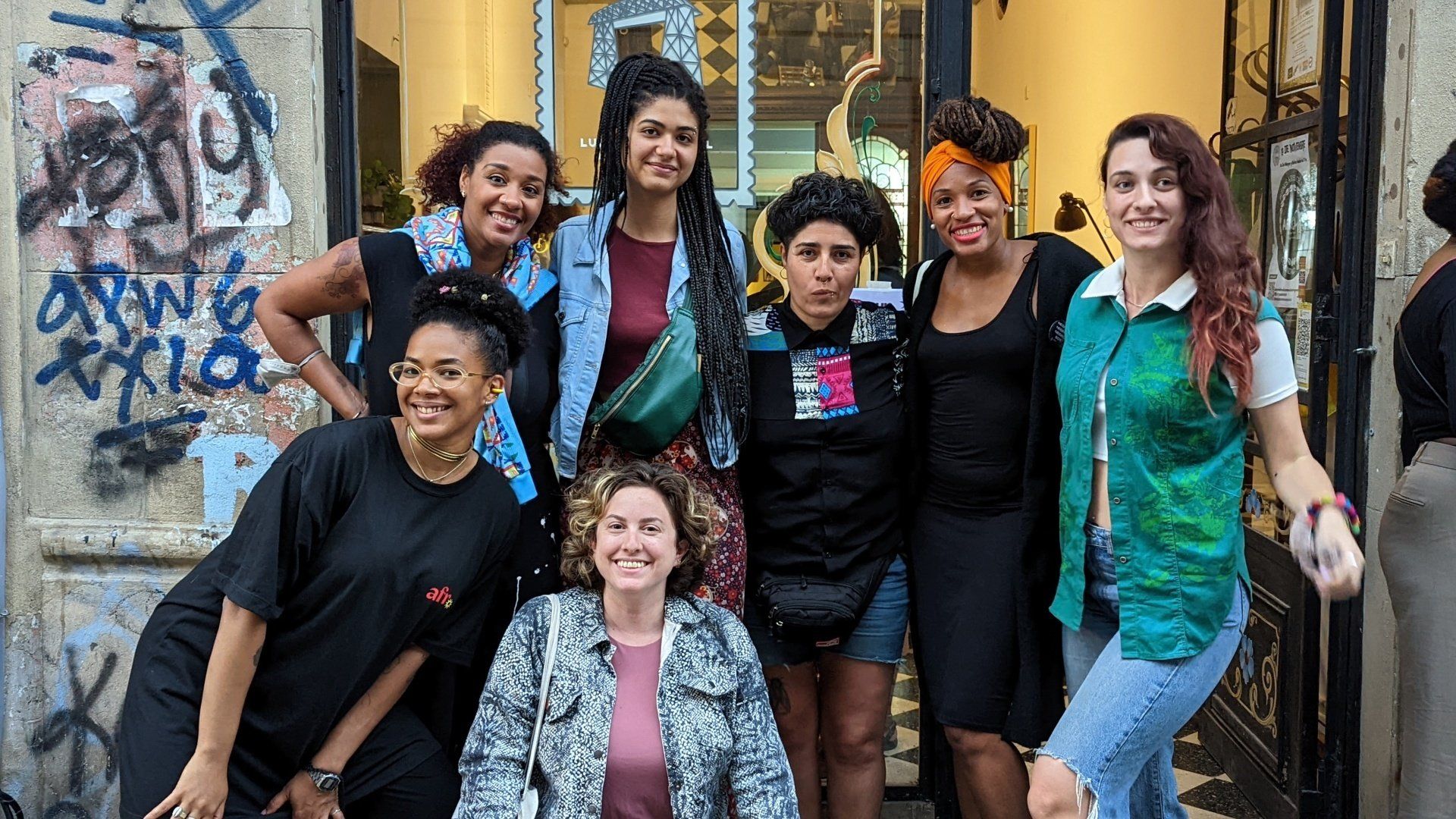Mate con Facturas
Lunfarda's Blog

The neighborhood of Once in Buenos Aires is known for many things: its vibrant street life, bustling markets, and diverse mix of cultures. This is, after all, a neighborhood where you will find Chinese, Bolivian, Peruvian, Senegalese and Jewish communities. But there is another side to this lively community, one that is shrouded in darkness and shrouded in mystery. For those who dare to delve into the history of Once, they will find a tale of tragedy and terror that has left a lasting mark on the community.
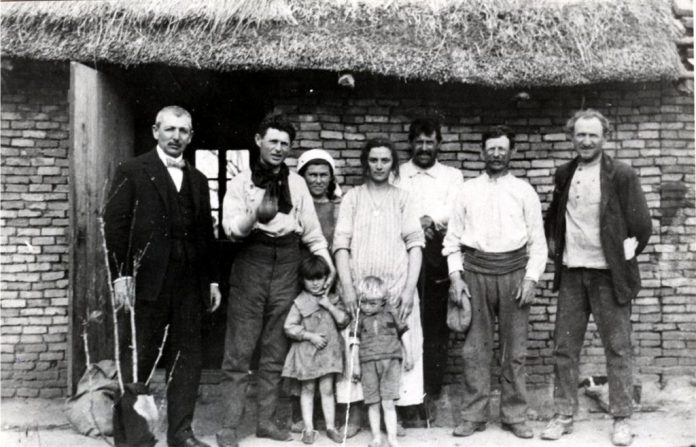
The Jewish gauchos were a group of Jewish immigrants who took their love for kosher deli sandwiches and matzo ball soup to the wild frontier of the Pampas region in Argentina . These immigrants, mostly from Eastern Europe, were drawn to the Pampas by the promise of land and opportunity (and maybe just a little bit by the thought of being the only Jewish cowboys in town). Many of them had fled persecution and poverty in their home countries and saw Argentina as a place where they could build a better life for themselves and their families. But life as a Jewish gaucho wasn't all latkes and lox: actually, no lox at all in the beef-producing heart of the Americas. These immigrants had to contend with the challenges of settling in a remote and harsh region, including drought, disease, and isolation. Many of them lived in poverty and worked as farmers and ranch hands, enduring physically demanding and often low-paying labor. However, the Jewish gauchos persevered and made a lasting impact on the Pampas region, establishing farms, ranches, and small businesses, and contributing to the growth of the region's agriculture and industry. They also played a vital role in the creation of a Jewish community in Argentina, building synagogues, schools, and cultural centers.

It’s been a few days since I arrived in Buenos Aires for my internship at Lunfarda and I’m only starting to learn about all the cultural differences- it’s the first time I live in a country that is that distinct from mine and, for me, the ways of the Argentines, and their coded body language are still kind of strange. I’m on my way to the bus stop, not paying attention to where I positioned myself. Quickly, a slightly upset-looking person gives me the four-finger-to-one-thumb-pointing-upside-down-sign or as well known as “What do you think you are doing??” This is when I learned that it does not matter that Argentines are disorderly about everything else: the bus line -and its order- is sacred. Quick side Note: You have to wave the bus down at a 45-degree angle arm to the body to stop it! Just telling you because on my first day of university here, I missed about five buses in a row running between the different bus stops until I got to understand that.

Language is a way to show norms, and communicate values. It’s a way of expression, status, and policy that reveals the culture that’s lived in one’s homeland. On the Argentinian menu, language comes with a side of insults, jokes, Lunfardo , and Argentinian history. Don’t assume the speaker’s intention too quickly, and even less if you are from a country with a let’s call it: more subtle -or literal- usage of wording. ⚠WARNING⚠ Some ways of expression might sound harsh but they are often not meant that way. On the contrary, it shows how history is carried along and still lived and spoken day-to-day, mouth-to-mouth among 45 million Argentinians, who are the makers of today’s Lunfardo, the local slang. Which is -indeed, a marvelously unique, and eccentric version of its own. If it’s about the very complex humor that doesn’t only often entail one of the many slang or so-called Lunfardo words but also infinite history-rich anecdotes- including years and years of politics flowing into the subtle humor of an Argentine. Be it a pastry that’s named “Friar balls’ or “Nuns sigh” or a “Vigilant” - coined by the worker's movement, that they are eating in all tranca (chill) while sipping through a Mate’s bombilla , professors quoting the Simpsons in their PowerPoints or a bunch of extremely funny memes digesting the daily life, joking about the president, football, or the seeming immortality of Mirta Legrand, the oldest host of the Argentine TV, who, believe it or not, is still at it at age 95 with the energy of a teen.
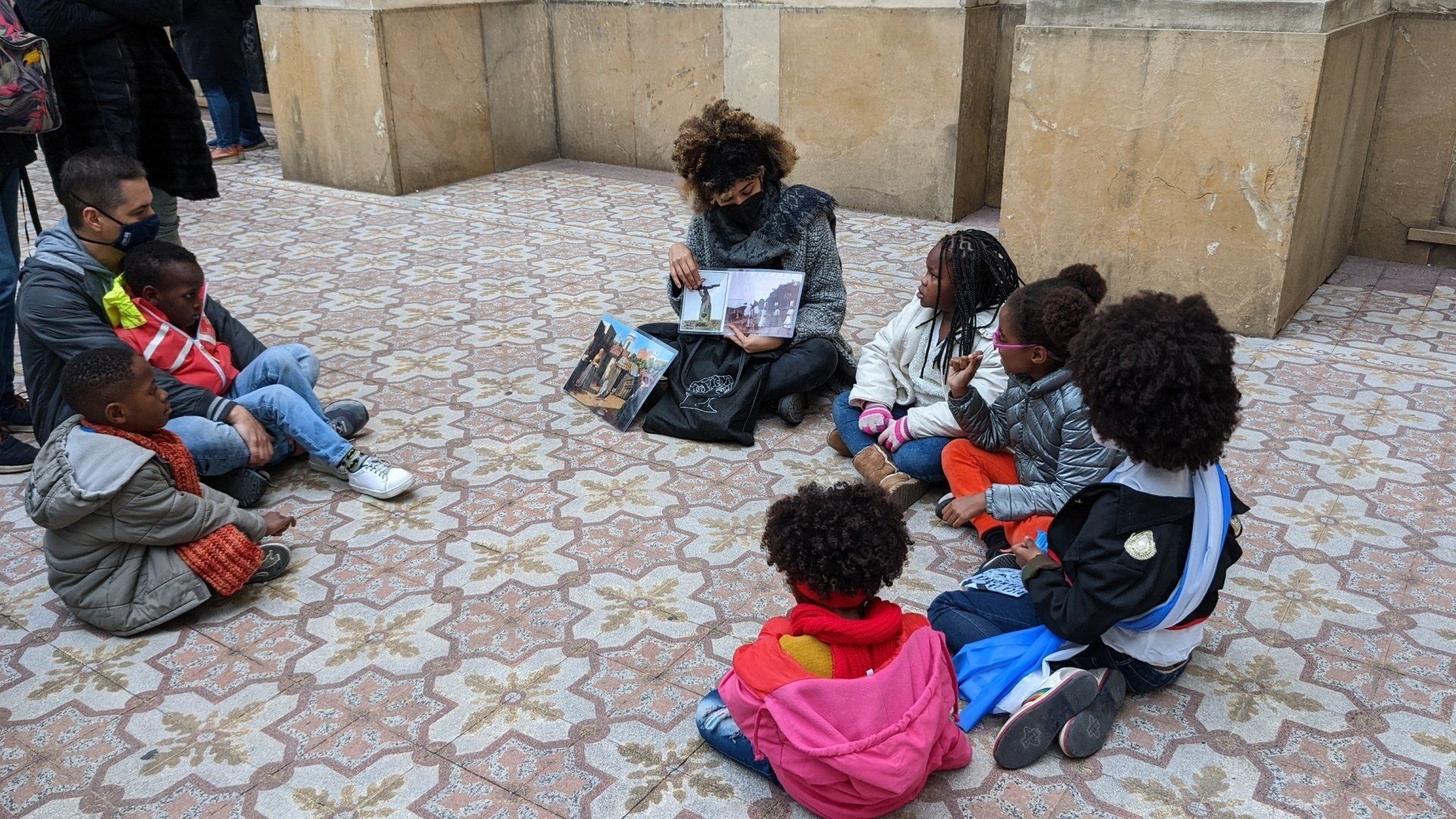
Black kids with tight curls and broad smiles flocked to the gates of the National Historic Museum on a cool, sunny fall afternoon in San Telmo, Buenos Aires. Just their presence there, running freely and playing tag in the patio of the museum seemed like a small act of justice: these kids were laughing and playing on top of an old slave trade market, by a house that had been built by enslaved Black people. Now, 169 years after the abolition of slavery in Argentina, our young audience gathered to experience something momentuous: a Black History Tour to learn the value and the contributions of the Afro-Argentines.
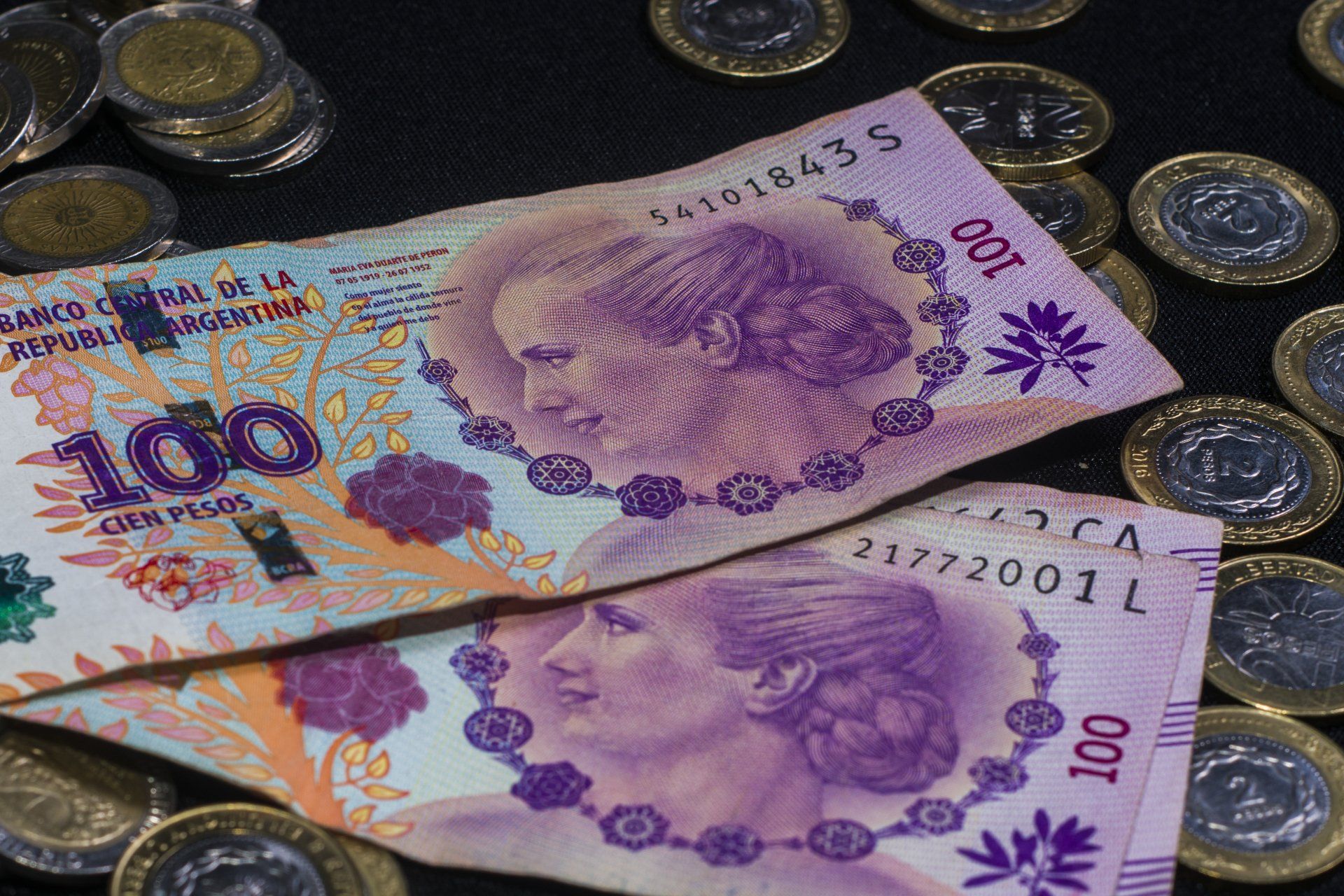
Argentine currency is messy . Its value changes daily, there’s an official rate, a parallel “blue” rate, different looking notes, reduced daily ATM withdrawal fees, and navigating it can be frustrating. Do not worry though, we’ve got you covered! Here’s how to get the best value for your money when you travel to Buenos Aires and across Argentina.
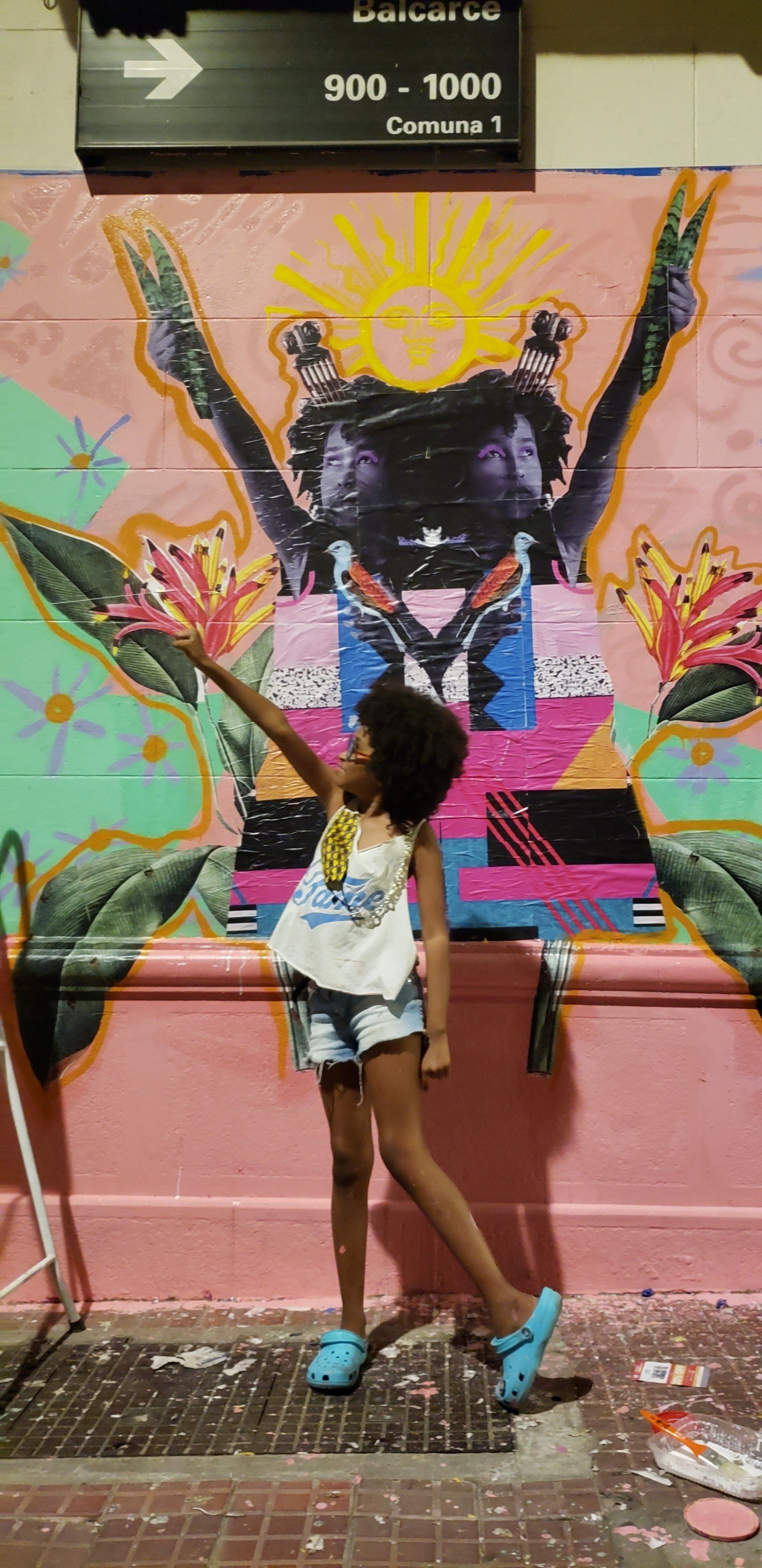
It was 5.30pm, the print shop was about to close, and our files were in the wrong format . While Analía -known as Afro Ana , a 30 year old digital artist- cursed, I sprinted towards my apartment to get a laptop to hopefully fix the issue. In less than 24hs, on November 20th, the day of Black Awareness on Argentine Black History Month, those files would be turned into the first ever mural about Revolutionary Black Heroine María Remedios del Valle, an obscured character with a Netflix-binging story.

Every Argentinian can include a football-related memory as one of their earliest memories. It is either the first World Cup match you got to watch, a historical goal by your favourite team, or just playing a good old picadito on the streets of your neighborhood. Don't get us wrong, though, not everyone is maniacally obsessed with the sport. It just happens that most of us are. The truth is that barely anybody can remain indifferent about football in Argentina, as it has played a central role in the development of the folk of our country. Whether we like it or not, fútbol as a practice is deeply interwoven with our history and its events; people have extended the jargon used in the pitch, recalling it heavily for everyday things regardless of age or gender * . Others denounce the show-biz around it, pointing out its use as a distraction from every other thing, from organised gang violence to the atrocity of state sponsored terrorism decades ago.


